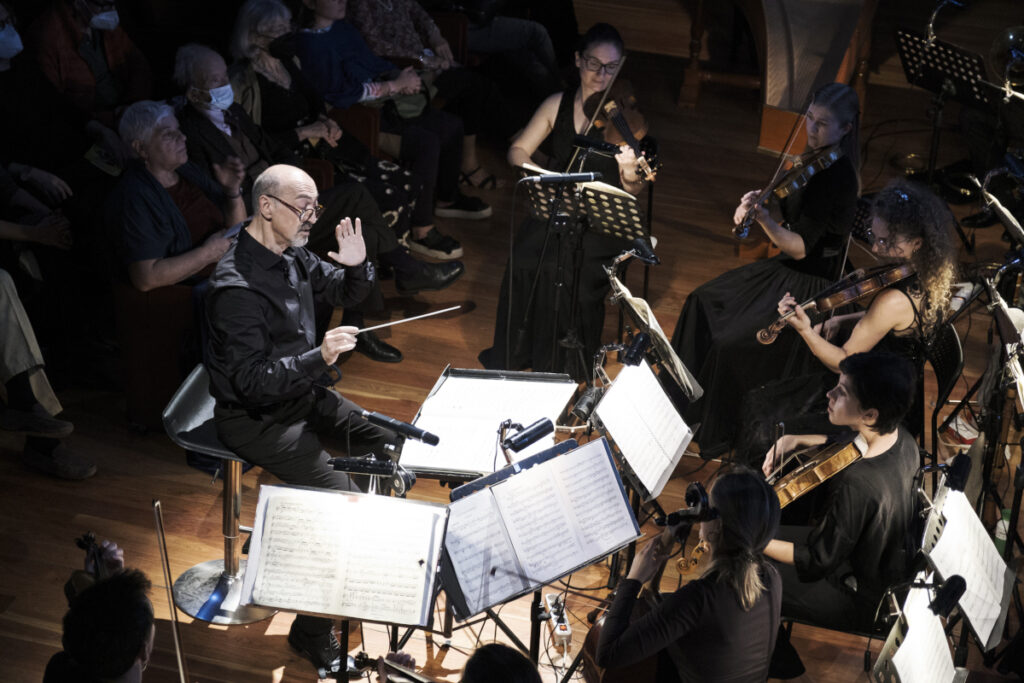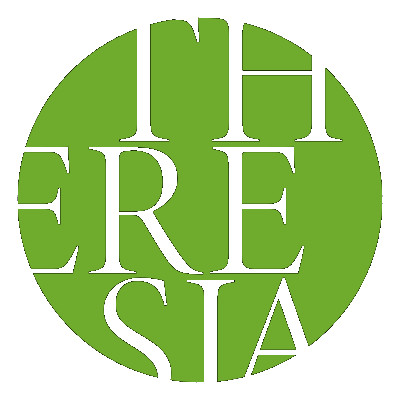
Alessandro De Marchi: “Rossini is a matter of balance between historical research and tradition”
By Emilia CampagnaOctober 20, 2023
Only a few days away from our next performances, we caught up with conductor Alessandro De Marchi who conducts Theresia in our annual opera project just like last year. We will make our return to the Reate Festival for belcanto opera to accompany a talented cast of emerging singers. And this time we’ll be challenged by adding something entirely new to our repertoire: Gioacchino Rossini and one of the first opera’s he wrote “L’inganno felice”.
Find out the details in this interview with conductor Alessandro de Marchi.
Maestro De Marchi, tell us about this Rossini opera “L’inganno felice”: where does it fit within the composer’s body of work?
It is a so-called “opera farsa” which Rossini composed in 1812 for the Teatro San Moise in Venice to a libretto by Giuseppe Maria Foppa. The term ‘farce’ is misleading, because the plot is anything but comic as it tells about the misfortune of a young bride who is sent to her death by her husband, who unjustly accuses her of infidelity. This characterisation only refers to the one-act structure and some of the typical formal characteristics of the work. The only ‘buffo’ element is the duet of the two basses, which is full of cynicism and irony. The opera was written by a young Rossini at the young age of 19 and clearly shows that he had already mastered the expressive skills typical for his style; above all, the work shows the composer’s mastery of instrumentation (learnt by studying the scores of Haydn and Mozart) that had already earned him the nickname “tedeschino” during his conservatory years.
Can you tell us about the vocal cast involved in this production? Are they singers you have worked with before?
I always enjoy working with talented young singers, and some of the discoveries of recent years have come from the prestigious Cesti Competition in Innsbruck, which I created in the Tyrolean capital in 2010. These artists include Miriam Albano and Matteo Loi, who are now established soloists on the international stage. A long collaboration connects me with the bass Luigi De Donato, who in recent years has given memorable interpretations alongside me of many baroque and bel canto roles. Tenor Antonio Gares and baritone Giuseppe Toia are excellent artists who have more recently been discovered through auditions and with whom I am happy to work with for the first time.
What is your relationship to Gioacchino Rossini?
Rossini has been with me throughout my professional life and even before then. In fact, I come from a family whose female side, the Neapolitan side, was made up of melomaniacs. My mother, aunts and my grandmother listened to opera records at home, and although in the best Italian tradition Verdi and Puccini topped the bill, Rossini also had his place. Even as a child, I loved to accompany singers on the piano, so I often played the most famous arias of the Pesaro composer to great pleasure. However, my affinity with the composer on a conducting level, was three decades ago, at the beginning of my contract as pianist at the Staatsoper Unter den Linden in Berlin. There, I was asked to conduct the Barber of Seville for the first time, “jumping” in the orchestra pit at the last minute without any previous rehearsal. It went very well, and after that fortunate occasion, Rossini engagements became more and more frequent, and so this composer has kept me company for more than 30 years now.
How does the approach to this composer change when performing according to historically informed practice?
My approach is similar with both modern and historical instruments. However, the result changes a lot when you change the instruments as well as the mind-set of the instrumentalists. Certainly, authentic instruments give us completely different sonorities, very fascinating sound mixtures, soft, but also scratchy when needed; also, as in the striking case of the horns, a fusion in the woodwind group that is unthinkable in a modern orchestra. There are many techniques and many aesthetic principles of Rossini’s time that have been lost and that can be reconstructed by studying the sources. On the other hand, there are just as many that have remained in the tradition and are still present today in performances with modern instruments, and which must be preserved as witnesses to practices that have never become extinct. I would say that creating a balanced and historically acceptable interpretation of this music means finding a balance between historical research and tradition.
The historically informed approach originates from the performance of Baroque repertoire, and was then extended to the Classical repertoire, as is the case with Theresia Orchestra. This Rossini project shows that one can go further: what sort of historical limits (if any) are there to perform his music?
Personally, I went as far as Bellini’s Sonnambula, an opera from 1831. And actually there are no time limits: in Germany they already play Wagner with historical instruments, in France they perform Ravel and Debussy on period instruments…
Theresia is performing Rossini for the first time: what can audiences and former collaborators who are familiar with the orchestra’s path and approach expect from this “encounter”?
The usual quality and energy of these young musicians, and above all the joy of making music together.


